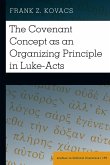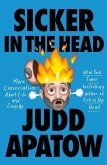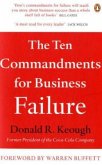Written and produced under martial law in 1980's Communist Poland, Krzysztof Kieslowski's Decalogue presents a collective portrait of a demoralized nation populated by gloomy individualists" who respond to other people with antagonism or indifference. Feeling betrayed by a history of brutal invasions, the series' characters struggle to cast off a legacy of a bitterness that has arisen because their national hopes have been so frequently shattered. Yet the central questions that animate The Decalogue are not political but ethical and ontological: How should one live? And why should one live at all in an atomized civilization? In exploring these questions in relation to the Ten Commandments, the series' unifying principle is, paradoxically, disintegration: Kieslowski's protagonists break the Commandments in a fractured world drained of meaning. Disintegration functions as a multidimensional principle-moral, historical, social, and psychological-informing The Decalogue's conception, organization, and style. In analyzing these features the study draws on a wide range of philosophical, literary and psychoanalytic inter-texts.
Bitte wählen Sie Ihr Anliegen aus.
Rechnungen
Retourenschein anfordern
Bestellstatus
Storno








